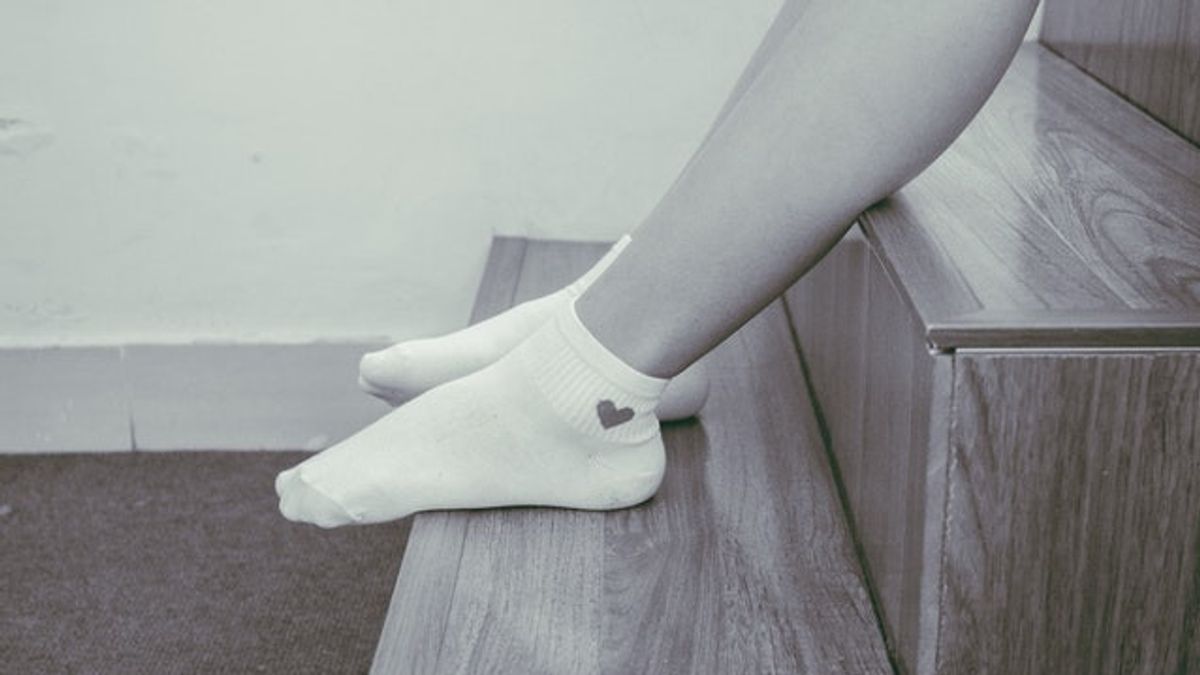JAKARTA - Having cold feet is sometimes not a pleasant experience and can be frustrating, no matter when or where you experience it. If your feet still feel cold even after wearing a thick pair of socks, you may need to know the cause so you can do something about it.
According to the Head of Health at Juno Medical, Aarti Agarwal, MD, as quoted from Real Simple, you may naturally feel cold more often and/or worse than others.
While this is sometimes part of a symptom of an underlying health condition, it is often the result of a simple problem of lower muscle mass.
Those who are cold may have relatively less muscle mass and because muscles generate heat, the body may try to keep warm by diverting heat away from extremities such as your hands and feet.
Another cause, you have poor blood circulation. Everyone has a circulatory system that is responsible for carrying blood throughout the body, but the circulatory system in some people can be less efficient.
If you have poor blood circulation, your blood may not flow as freely or as quickly as it should, and because circulation can affect your body temperature, this decrease in blood flow can cause you to feel cold.
Dr. Agarwal notes that the blood vessels in your feet and hands are the smallest and most sensitive. So poor circulation can cause your feet and hands to feel very cold.
"There are many reasons for poor circulation. Smoking and obesity are common risk factors, as well as other underlying health conditions (such as Peripheral Arterial Disease or Raynaud's Disease)," says Dr. Agarwal quoted from ANTARA, Sabut, March 12.
Exercising regularly, avoiding smoking, and eating a balanced diet are healthy habits that can help improve your blood circulation.
On the other hand, the stress that hit can also contribute to the coldness of your hands and feet. Your heart rate and blood pressure will increase, and you may breathe more heavily. This is because your body is working to direct resources like blood, nutrients, and oxygen to major muscle groups.
Since your hands and feet are not the main muscle group, they may experience decreased blood flow during times of stress. Then, since circulation plays a key role in regulating body temperature, it can cause your hands and feet to feel cold.
Another possible cause of cold feet is that you have an underactive thyroid. If you have hypothyroidism or an underactive thyroid gland, then your thyroid gland is not producing enough of these hormones.
This can gradually cause your body to slow down and function less well. You can feel tired, sick and become more sensitive to cold.
How to deal with cold feet
You may need a doctor's opinion to uncover the cause of your cold feet so that you can get proper medical treatment. However, your doctor can make sure you don't have any medical issues to worry about, so you can rest assured that you're in top shape.
Here are some basic tips and healthy habits to warm your cold feet:
1. Stretch or move your legs. According to Dr. Agarwal, moving can get some of the blood flowing to your feet, which can help keep them warm.
2. Exercise. Regular exercise is one easy way to improve your blood circulation, which can help you prevent cold feet.
4. Use a hot water bottle or heating pad.
5. Minimize stress As stress can cause your extremities to cool down, it's a good idea to reduce stress wherever you can.
6. Wear socks to warm and protect chronically cold feet.
7. Reduce smoking because it has been linked to some blood vessel disorders. By reducing or even quitting smoking, you may be able to reduce your risk of developing several other health conditions including cold feet.
The English, Chinese, Japanese, Arabic, and French versions are automatically generated by the AI. So there may still be inaccuracies in translating, please always see Indonesian as our main language. (system supported by DigitalSiber.id)













